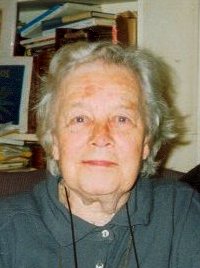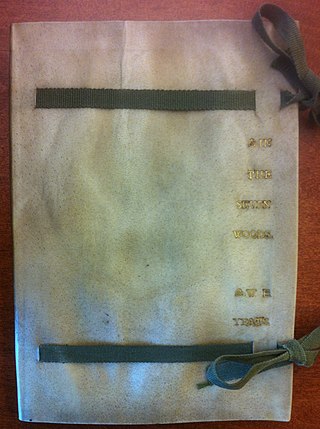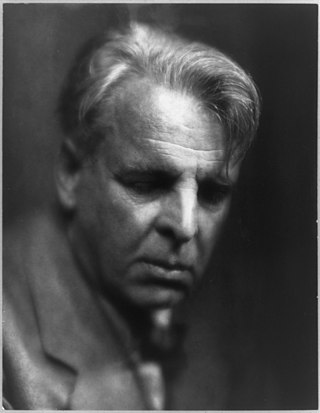Related Research Articles

William Butler Yeats was an Irish poet, dramatist and writer, and one of the foremost figures of 20th-century literature. He was a driving force behind the Irish Literary Revival, and along with Lady Gregory founded the Abbey Theatre, serving as its chief during its early years. He was awarded the 1923 Nobel Prize in Literature, and later served two terms as a Senator of the Irish Free State.
The Wanderings of Oisin is an epic poem published by William Butler Yeats in 1889 in the book The Wanderings of Oisin and Other Poems. It was his first publication outside magazines, and immediately won him a reputation as a significant poet. This narrative poem takes the form of a dialogue between the aged Irish hero Oisín and St. Patrick, the man traditionally responsible for converting Ireland to Christianity. Most of the poem is spoken by Oisin, relating his 300-year sojourn in the isles of Faerie. The poem was not popular among modernist critics like T. S. Eliot. However, Harold Bloom defended this poem in his book-length study of Yeats, and concludes that it deserves reconsideration.
"The Second Coming" is a poem written by Irish poet W. B. Yeats in 1919, first printed in The Dial in November 1920 and included in his 1921 collection of verses Michael Robartes and the Dancer. The poem uses Christian imagery regarding the Apocalypse and Second Coming to describe allegorically the atmosphere of post-war Europe. It is considered a major work of modernist poetry and has been reprinted in several collections, including The Norton Anthology of Modern Poetry.

Kathleen Jessie Raine was a British poet, critic and scholar, writing in particular on William Blake, W. B. Yeats and Thomas Taylor. Known for her interest in various forms of spirituality, most prominently Platonism and Neoplatonism, she was a founding member of the Temenos Academy.
The Wanderings of Oisin and Other Poems was the first collection of poems by W. B. Yeats. It was published in 1889.
The Tower is a book of poems by W. B. Yeats, published in 1928. The Tower was Yeats's first major collection as Nobel Laureate after receiving the Nobel Prize in 1923. It is considered to be one of the poet's most influential volumes and was well received by the public.

In the Seven Woods: Being Poems Chiefly of the Irish Heroic Age is a volume of poems by W. B. Yeats, published in 1903 by Elizabeth Yeats's Dun Emer Press, the first edited by this publishing house.

"The Stolen Child" is an 1889 poem by William Butler Yeats, published in The Wanderings of Oisin and Other Poems.
"Song of the Old Mother" is a poem by William Butler Yeats that first appeared in The Wind Among the Reeds anthology, published in 1899. The poem echoes Yeats' fascination with the Irish peasantry.

"Politics" is a poem by Irish poet William Butler Yeats written on May 24, 1938. It was composed during the time of the Spanish Civil War as well as during the pre-war period of Adolf Hitler's Third Reich in Germany. The poem hints at the political situations of "Rome" (Italy), "Russia", and Spain, but ultimately discusses topics more relevant to private human interaction rather than public, or political situations. The poem never mentions Germany or Hitler, despite the fact that the "war and war's alarms" surrounding the poem's creation arose from fears of Germany's aggression rather than Italy's, Russia's, or Spain's. Many versions of the text exist: the original typescript of May 1938, the first typescript with hand-written corrections dated August 12, 1938, as well as a final "Coole Edition" of the poem dated June 29, 1939, which was not published until it was included in Last Poems in 1939. Yeats intended for the poem to be printed last in the collection, as an envoi to "The Circus Animals' Desertion", and while a debate as to the true order of the poems has continued since 1939, "Politics" was the last lyric poem Yeats wrote and remains the final work printed in all posthumous editions.
"An Irish Airman Foresees His Death" is a poem by Irish poet William Butler Yeats (1865–1939), written in 1918 and first published in the Macmillan edition of The Wild Swans at Coole in 1919. The poem is a soliloquy given by an aviator in the First World War in which the narrator describes the circumstances surrounding his imminent death. The poem is a work that discusses the role of Irish soldiers fighting for the United Kingdom during a time when they were trying to establish independence for Ireland. Wishing to show restraint from publishing political poems during the height of the war, Yeats withheld publication of the poem until after the conflict had ended.
"Down by the Salley Gardens" is a poem by William Butler Yeats published in The Wanderings of Oisin and Other Poems in 1889.
Nationality words link to articles with information on the nation's poetry or literature.
"The Tower" is a poem by the Irish poet William Butler Yeats. It is the second poem in The Tower, a 1928 collection of Yeats' poems.

"On being asked for a War Poem" is a poem by William Butler Yeats written on 6 February 1915 in response to a request by Henry James that Yeats compose a political poem about World War I. Yeats changed the poem's title from "To a friend who has asked me to sign his manifesto to the neutral nations" to "A Reason for Keeping Silent" before sending it in a letter to James, which Yeats wrote at Coole Park on 20 August 1915. The poem was prefaced with a note stating: "It is the only thing I have written of the war or will write, so I hope it may not seem unfitting." The poem was first published in Edith Wharton's The Book of the Homeless in 1916 as "A Reason for Keeping Silent". When it was later reprinted in The Wild Swans at Coole, the title was changed to "On being asked for a War Poem".
This is a list of all works by Irish poet and dramatist W. B. Yeats (1865–1939), winner of the 1923 Nobel Prize in Literature and a major figure in 20th-century literature. Works sometimes appear twice if parts of new editions or significantly revised. Posthumous editions are also included if they are the first publication of a new or significantly revised work. Years are linked to corresponding "year in poetry" articles for works of poetry, and "year in literature" articles for other works.
The Rose Tree is a poem by William Butler Yeats. It was published in 1921 as part of his collection Michael Robartes and the Dancer.
"The Lake Isle of Innisfree" is a twelve-line poem comprising three quatrains, written by William Butler Yeats in 1888 and first published in the National Observer in 1890. It was reprinted in The Countess Kathleen and Various Legends and Lyrics in 1892 and as an illustrated Cuala Press Broadside in 1932.
"The Fiddler of Dooney" is a poem by William Butler Yeats first published in 1892.
The Gift of Harun Al-Raschid, written in 1923, is a poem by the Irish poet William Butler Yeats, first published in 1924 in the American journal The Dial in a collection of The Cat and the Moon and Certain Poems. The poem was then published in his prose book A Vision in 1925 and was included in Yeats's collection of The Tower, which was published in 1928.
References
- ↑ Holdeman, David (2006). The Cambridge introduction to W. B. Yeats. Cambridge: Cambridge university press. pp. 8–9. ISBN 978-0-521-83855-9.